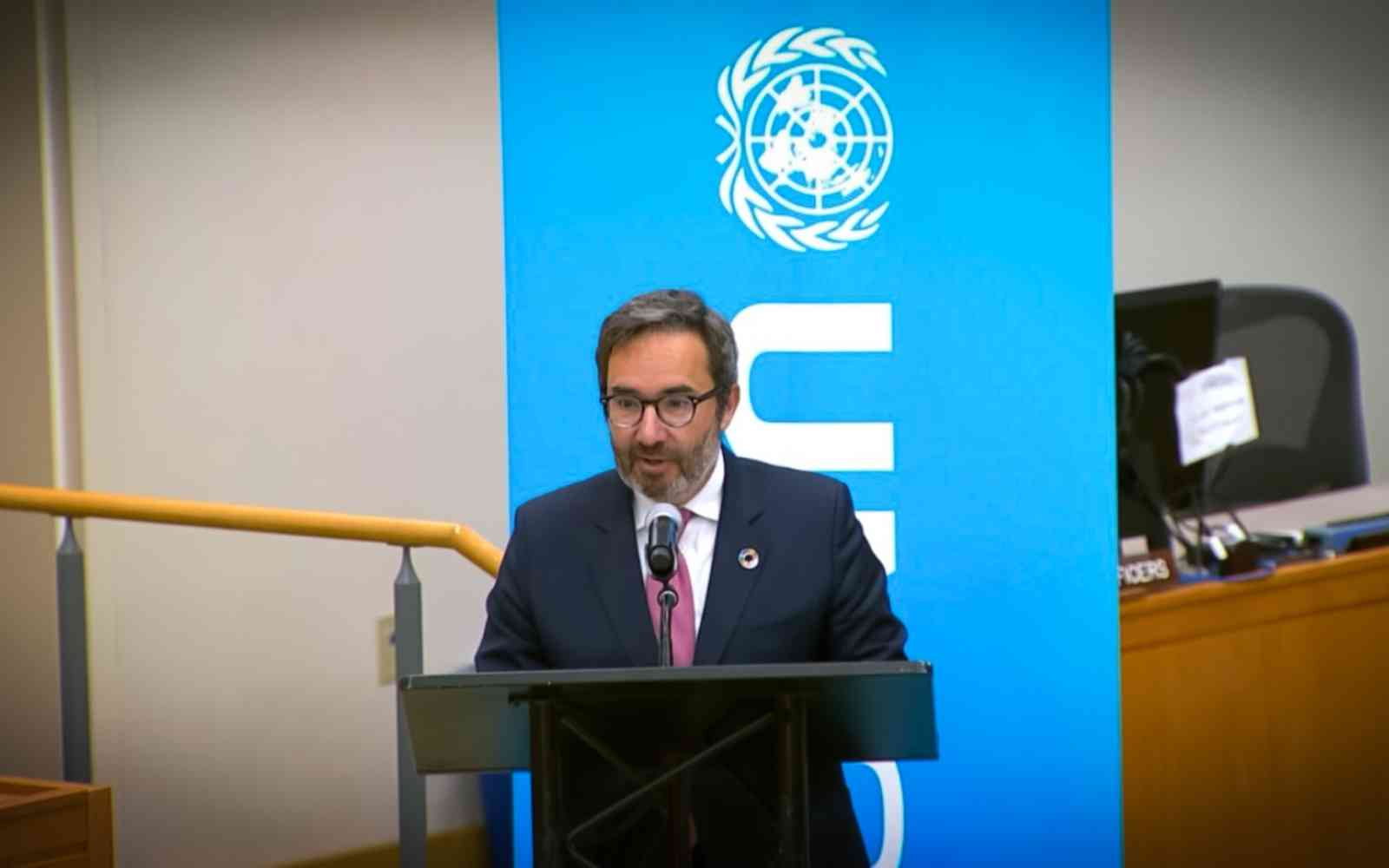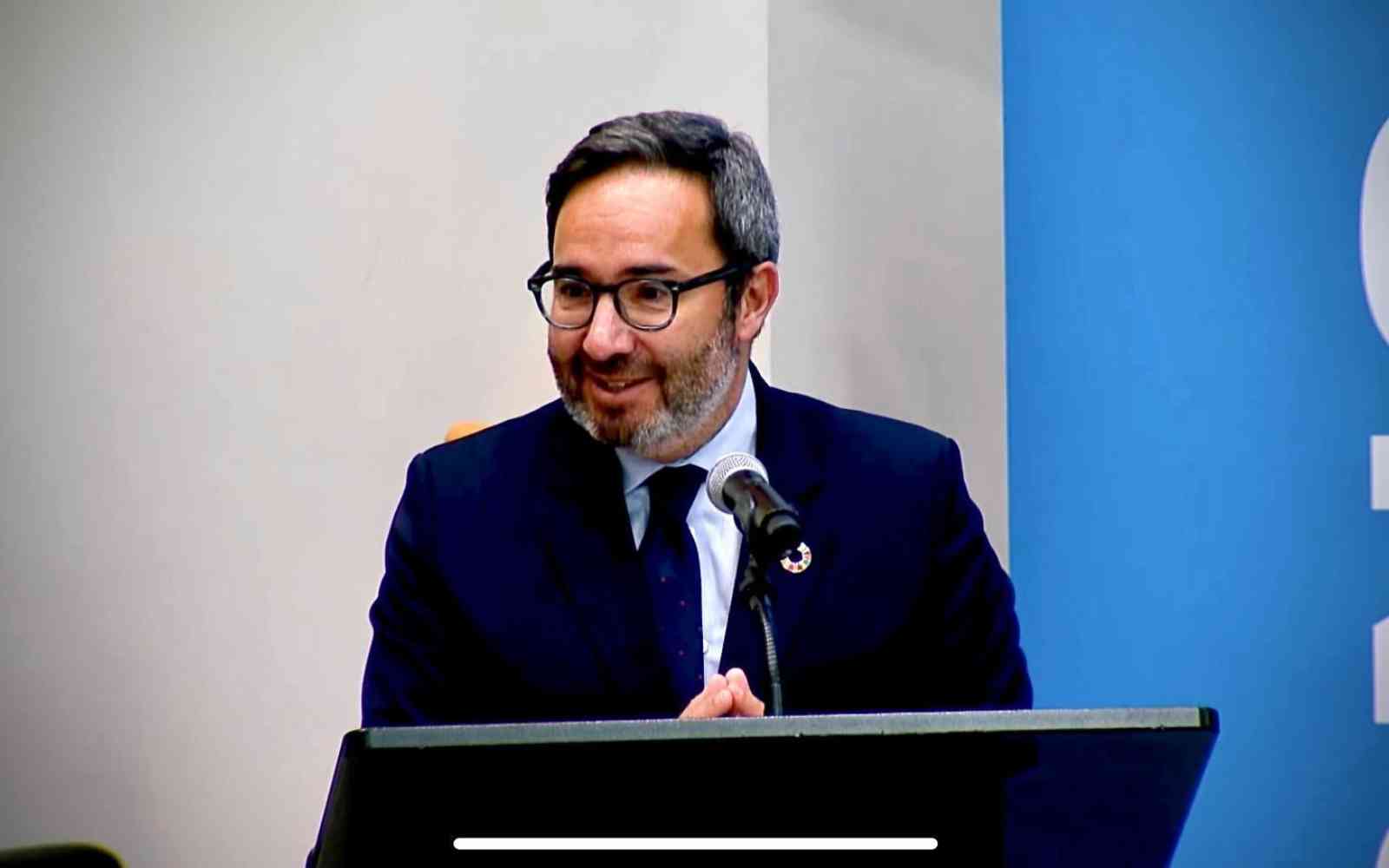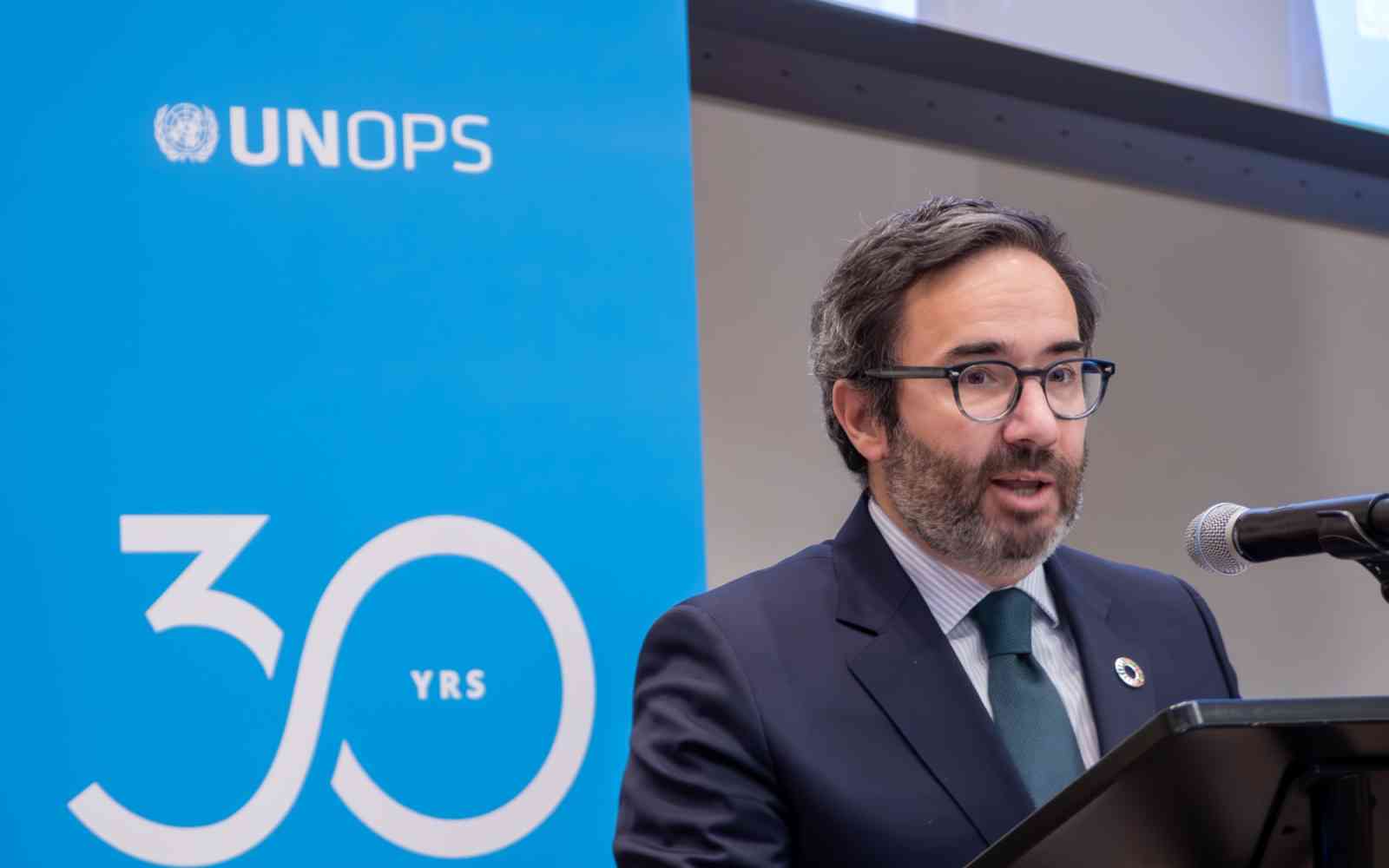The United Nations Office for Project Services (UNOPS)
Statement to the Annual Session of the Executive Board 2021
Statement by Grete Faremo, Under-Secretary-General and Executive Director of UNOPS, to UNDP/UNFPA/UNOPS Executive Board Annual Session – 11 June 2021
[Check against delivery]
Madam President, honourable members, it is a pleasure to speak to you once again.
COVID-19
I want to start with the starkest reality of our lives last year: COVID-19.
The pandemic has reshaped how we live and work. And it continues to wreak havoc around the world. We have learnt - once again - that solutions are found when we work together.
We have built on our expertise - and mandate - to support our partners:
To procure medical supplies and equipment
To strengthen the infrastructure of health systems,
And to assist in vaccination roll-out programmes
As our world emerges from the pandemic and looks to a future, we continue to work together with our partners on the crucial and collective task of getting back on track towards the SDGs.
Annual results
In this session I will present UNOPS 2020 annual report, and an outline of our future strategy.
In 2020, our successful pandemic response reflected broader achievements as an organization.
Last year, UNOPS delivery of projects around the world exceeded $2.2 billion.
Considering the severe obstacles and restrictions that our implementation work faced, to be so close to our previous year's record is a major achievement.
Almost $900 million dollars worth of new agreements were signed to combat COVID-19.
Yet sadly, we lost lives.
Over this year, more so than any others in my time at UNOPS, I pay tribute to all UNOPS personnel, many of whom are based in the most challenging places in the world, for their dedication to save and improve lives in tangible ways.
As examples of key results, I can share that in total last year:
UNOPS-supported projects created 3.4 million days of paid work for local people.
Our infrastructure activities included work on more than 2,300 kilometres of roads and more than 100 schools.
We procured 1.3 billion dollars worth of goods and services for our partners, and close to 600 million dollars worth of procurement spending went to local suppliers, supporting local and national economies.
Strategic plan 2018-2021
Distinguished members,
I want to place our achievements of last year in the broader context of our current strategic plan.
From 2018-2021, we have spent considerable time and energy focusing on how we could add more value to Agenda 2030.
We have focused on enhancing the quality of what we deliver, and on providing value for money for our partners. Over this period, our fees have consistently been below 5 per cent.
Thanks to your guidance and direction, the demand for UNOPS services has never been greater.
Last year, new agreements signed with our partners exceeded 10 billion dollars.
This is an unprecedented 300 per cent growth, compared with the annual average of the previous 4 years.
Nearly 80 per cent of the total is related to health - with a significant proportion related to our support to the Government of Mexico.
This represents a step-change to our organization. It reflects the trust and confidence that partners have in UNOPS’ capacity to deliver quality, even under extraordinary circumstances.
Strategic plan 2022-2025
As we look towards our new Strategic Plan, we want to build on our achievements. We aim to help build a better future for the people we serve, supporting our partners to achieve the SDGs through our mandate and expertise.
Our support remains demand-driven:
across the three pillars of the UN Charter,
across all of the SDGs,
in the most challenging operational contexts.
Allow me to start with our vision of what we want to do over our next strategic plan.
Guided by the Agenda 2030, we will support countries in developing their capacity and resource base.
Our priorities are: (1) quality infrastructure, (2) improved public procurement, and (3) our Sustainable Investments in Infrastructure and Innovation (S3i) initiative.
We will enable partners to ‘do more with less’ through efficient project services, mostly delivered locally.
And we will place particular attention on sustainable implementation - in economic, social and environmental terms. To elaborate:
We will continue our pioneering work on more inclusive, sustainable and resilient infrastructure, which is key to achieving the SDGs and addressing climate change.
We will continue our work on improving public procurement, to tap into its huge unrealized potential to accelerate progress towards the SDGs.
Procurement is a key part of COVID-19 economic recovery packages. It has immense potential to:
- drive gender equality and inclusion,
- fight corruption,
- create jobs,
- accelerate the shift to lower-carbon economies, and
- champion a more sustainable and inclusive recovery.
Together with the governments of Mexico and Argentina, we stressed the key importance of improved public procurement in preventing corruption, at our successful high-level event last week at the UN General Assembly special session against corruption.
We will also continue our quest to broaden resources available to the SDGs, beyond ODA.
Our Sustainable Investments in Infrastructure and Innovation (S3i) initiative contributes to addressing critical national infrastructure needs, such as affordable housing, renewable energy and health.
Overall, UNOPS has now committed to supporting the construction by 2030 of some 1.3 million homes in Ghana, Guinea, India, Kenya, Nigeria, Pakistan, and across the Caribbean.
Last year, due to COVID-19 lockdowns on construction activities S3i faced considerable challenges. But I am happy to announce that a new high-level S3i Advisory Group on Investments, composed of external experts, has been established and is in place.
Quality
Honourable members, I have provided a brief outline on what we intend to focus on.
Allow me now to address the key question of how we intend to move forward.
We aim for quality in everything we do, and will actively refine our services based on lessons learned, through our implementation activities, and during the pandemic.
Our enhanced focus on health and safety will continue.
As will our drive for greater digitization,
And we will continue to place great emphasis on managing our assets and finances responsibly.
As requested, a leading independent consulting firm has conducted a detailed operational reserve study. It found that our current model does not fully account for the residual financial risks faced by the organization. It is our responsibility to reassure our partners that UNOPS can deliver on its commitments, should a worst-case materialize. So at the Second Regular Session of the Board, recommendations to refine how the formula is calculated will be presented for your guidance.
UN reforms
On UN reforms, we continue to engage in this system-wide effort, and to collaborate and coordinate with our UN partners at all levels.
We do so in accordance with our unique non-programmatic implementation mandate, and self-financing business model.
I have highlighted many examples of these efforts in my statement.
Allow me to cite one example here building on our project management expertise:
In Zimbabwe, together with FAO, IOM, UNICEF, UNFPA and WHO, and in the aftermath of the 2019 cyclone, UNOPS is honoured to manage co-ordinated efforts to address food security, livelihoods, health, education, and water and sanitation needs, funded by a 72 million dollar grant from the World Bank.
Our successful progression towards gender parity is another testament to our commitment to UN reforms. As is our determination to pursue a zero-tolerance policy to sexual exploitation, abuse or harassment.
And as chair of the HLCM, I am sharing the benefits of our experiences to the wider UN system, and as ever we stand ready to bring UNOPS learnings to support the UN’s reform journey.
Equality
As is the case across the UN, our commitments to the highest standards of ethics and integrity, will always be at the forefront.
UNOPS has now reached gender parity; women represent 49 percent of our workforce. Considering this was 36 per cent just 4 years ago, this again represents a significant achievement.
Today, at decision making levels, women hold some 44 percent of senior positions across UNOPS. And we will continue to drive for parity at senior levels.
And within our workforce, gender equality will remain a key priority for UNOPS - as we continue to make progress towards being a more equal organization.
UNOPS has also made great progress in mainstreaming gender in projects, but we need to step up our efforts to help close this gap.
Inclusiveness goes beyond gender. Later this year, I look forward to sharing more details with you all as we widen our approach, and strive to ensure a broader, more diverse, and more inclusive model, including issues like disability, ethnicity and race, economic status, LGBTQI+ identities and youth.
Conclusion
Distinguished members, I have tried to capture key elements of our vision for 2022-2025.
We have benefitted from engaging with you in informal consultations over recent weeks, and aim to present the strategic plan to the Executive Board in September.
To conclude; we live in a unique time facing a unique set of challenges, from a pandemic with devastating consequences, to the existential threat of a changing climate. Our experience of 2020 shows if we are to survive and thrive, it is important to act together.
We stand ready - under your guidance - to be part of the collective solution to our world’s biggest challenges.










